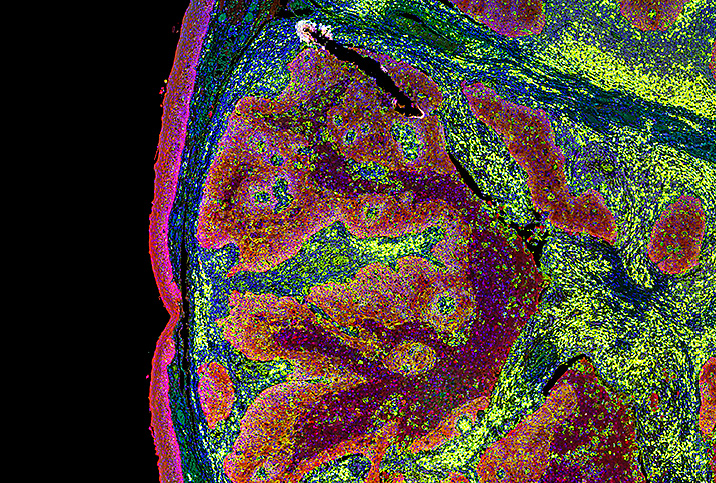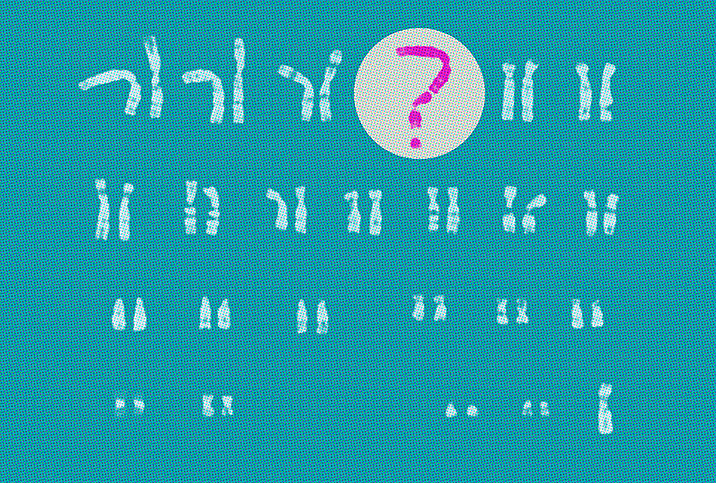Race Is a Factor in Testicular Cancer, but Why?

Testicular cancer is a relatively rare cancer in general, with fewer than 10,000 new cases per year in the United States, but it is more common in males of certain races. For instance, testicular cancer is most common in non-Hispanic white males, followed by Hispanic, American Indian, African American and Asian males.
Why the disparity?
"The reasons for the racial and ethnic differences in the incidence of testicular cancer are not fully understood," said Brian H. Black, D.O., an osteopathic family physician with Hendricks Regional Health in Greencastle, Indiana, and the medical director of Elara Caring Hospice.
As with many conditions, there probably isn't just one cause. Rather, a combination of genetic, environmental and lifestyle factors contributes to the higher rates of testicular cancer in certain populations.
Black added it's also possible that the variation in testicular rates may be due, at least in part, to differences in the cultural stigma surrounding men's health, as well as access to healthcare screening and diagnosis.
Risk factors for testicular cancer
Along with race, the American Cancer Society notes that other primary risk factors for testicular cancer include:
- History of having an undescended testicle
- Family history of testicular cancer
- Infection with HIV
- A tall body
- Previous history of testicular cancer
- Current or previous history of smoking
- Age. Testicular cancer is more common in males ages 15 to 45
One possible link between race and testicular cancer risk is diet, as food habits may vary among different racial groups and ethnicities. For instance, a study from 1999 found a diet high in fat, red meat and milk or low in fruits and vegetables may be associated with a slightly increased risk of testicular cancer.
However, Black noted there are no conclusive current studies that show a clear correlation between diet and testicular cancer. He also pointed out that the diet itself may not be the link to cancer risk; it could be the lifestyle factors associated with people who eat certain diets. For example, people who eat more fruits and vegetables may have a higher socioeconomic status and have access to insurance and doctors, making them more likely to go to the doctor and conduct regular testicular self-exams.
"Diet is just one potential factor that may contribute to the development of testicular cancer, and there are likely multiple factors at play," he said. "I do think it is important in terms of general advice but not the biggest risk factor of concern."
In addition to a lack of clear evidence surrounding a specific dietary link to the development of testicular cancer, Black noted there isn't one specific diet that's been shown to be effective in the treatment of the disease.
Eat a well-rounded and balanced diet full of fruits and vegetables with lean protein sources. This diet is considered helpful in reducing the risk of many diseases and health conditions, as well as helping the body tolerate any necessary treatment.
"Eating a heart-healthy diet consisting of plenty of vegetables and a moderate amount of protein and minimizing artificially processed foods helps lower the risk of testicular cancer," added Robert Caruso, M.D., a urologist for Clara Maass Medical Center and Newark Beth Israel Medical Center in New Jersey.
The bigger picture
Caruso noted that the differences in testicular cancer among races may actually be attributed to a delay in diagnosis, not actual rates of the cancer.
He explained that Black Americans are more likely to have higher incidences of undescended testes, and the diagnosis is usually delayed, meaning they may not be aware of their increased risk of testicular cancer until later.
Access to care and cultural differences surrounding attitudes about health, especially regarding male genitalia, also likely play major roles in racial disparities.
"Many men may feel uncomfortable discussing their testicles or seeking medical attention for issues related to them," Caruso said. "This can be especially true for men who come from cultures or communities where talking about such matters is considered taboo or inappropriate. Some racial disparities for testicular cancer are related to access to care and a willingness to see a doctor or trust in the medical system."
Black noted that some communities may also have a lack of awareness and education on what signs to look for and how to perform testicular self-exams.
"This can be especially true for men who come from cultures or communities where there is little emphasis on preventive healthcare or where access to medical care is limited," he said.
Cultural barriers to testicular cancer care, especially diagnosis and treatment, may be related to healthcare access and affordability.
"Some men may not have access to medical care due to financial or insurance barriers, or they may live in areas where medical facilities or qualified physicians are not readily available," Black explained.
Survival rates by race also support this theory. White non-Hispanic men have the highest survival rate, while Hispanic, Asian and African American males have lower survival rates, respectively. Like the disparities in risk, it's thought that survival rate disparities by race are related to healthcare access and potential barriers, such as culture and language.
It's not always easy for men to seek help, especially for something as personal and sensitive as their testicles. It's even more difficult for those without a regular physician.
Video visits have become a viable option for most people, and more physicians have added them as a service. Giddy telehealth makes it easy to get connected to a qualified healthcare professional who can help with a variety of conditions and get the conversation started.
Lastly, geographical differences could play a role. For instance, some data shows that people of Asian American/Pacific Islander descent have the lowest testicular cancer rates.
How to reduce your risk of testicular cancer
Testicular cancer is the most common type of cancer in males ages 15 to 34. Equally as worrisome, its prevalence has risen over the past several decades.
The increased risk emphasizes how important it is for males and doctors to be aware of the risk factors that can contribute to the cancer, even if much is still to be learned.
What the medical community does know is that if you're aware you are at a higher risk of testicular cancer, due to race or other risk factors, you should speak to your doctor about screenings.
Black stressed that while knowing your risk is important, testicular cancer can still occur in biological males of any race or ethnicity. He recommended the following steps to reduce your risk of testicular cancer:
- Perform monthly testicular self-exams. Males should be familiar with the normal size, shape and feel of their testicles and perform monthly self-exams to survey for changes.
- See a healthcare provider regularly. Regular checkups can help identify any potential problems early, when treatment is most likely to be successful.
- Practice safer sex. Using condoms can help reduce the risk of sexually transmitted infections (STIs), including HIV, which may increase the risk of testicular cancer.
- Follow a healthy lifestyle. Eat a healthy diet, get regular exercise and avoid tobacco.
Black added that males should be aware there is no proven way to prevent testicular cancer. Even men who take all of these preventive measures may still develop the disease.
"Remember, early detection can make all the difference in the successful treatment of testicular cancer," he said.
While the unknowns about testicular cancer in combination with its increasing rates, especially among young males, is concerning, the good news is that testicular cancer is a relatively easy cancer to treat when detected early.
"Many men may not realize that testicular cancer is a treatable disease," Black said. "Testicular cancer is one of the most curable types of cancer when it is caught early. Surgery, radiation or chemotherapy is well described, with cure rates in the 95 to 98 percent range for the initial stages."


















